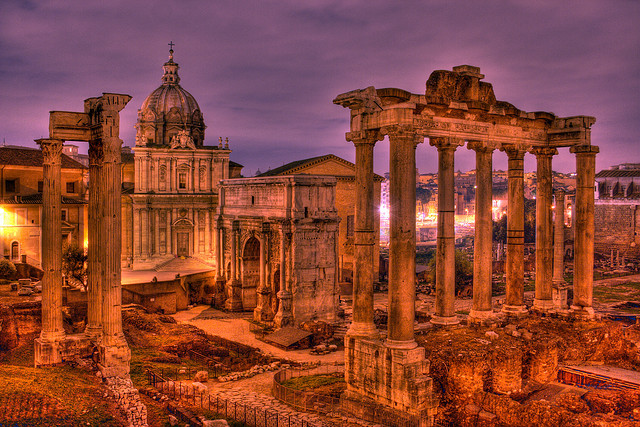Rome vs Greece
There are numerous differences between Rome and Greece, as they are two separate countries with distinct civilizations. However, since the Roman civilization emerged after the Greek one, there are some shared qualities. For example, they have many similar mythologies, particularly in relation to the gods. Although they have different gods, these gods have similar responsibilities, and for every god in one civilization, there is an equivalent god in the other. For instance, Aphrodite is the Goddess of love in Greek mythology, while Venus holds the same role in Roman mythology.
Key Takeaways
- Greece civilization is older than Roman civilization.
- Rome did not make as much progress in their time period compared to Greece, which began progressing as a nation in the 5th century BC.
- Both the civilizations believed in the division of their people; Greeks divided their society into categories of slaves, free men, metics, citizens, and women, while Roman society consisted of Free Men, Slaves, Patricians, and Plebeians.
More about Rome
Rome is an ancient civilization that began as an agricultural community before the 10th century BC. Roman civilization started alongside the Mediterranean Sea and eventually became the largest empire of the ancient world. The Roman civilization dominated the South Western and South Eastern areas of Europe, absorbing them into the empire. Due to problems of stability from within the empire and attacks from outside, Italy, Africa, Hispania, Gaul, and Britannia, which formed the western portion of the empire, broke into separate kingdoms during the 5th century. By 286 BC, what remained of the empire were Greece, Balkans, Syria, Egypt, and Asia Minor. The Roman Empire later lost Egypt and Syria, and the remaining areas existed for another millennium. The people of Rome’s civilization are typically referred to as classical antiquity. The early Roman civilization contributed to the developments of technology, language, religion, literature, art, government, law, war, and architecture of the empire as well as the Western World. Even today, the history of the Roman Empire influences a significant portion of the world.
In the present world, Rome is no longer a country or an empire but the capital of Italy. Rome is a metropolitan area and one of the oldest and continuously occupied cities in Europe. The historic center of Rome is listed by UNESCO as a world heritage site, and by 2014, the population of Rome was 2,869,461.
More about Greece
Greece is a civilization associated with the history of this area of the world. The Greek civilization lasted from the 8th century to the 6th century and then from 146 BC to the Roman people’s mastery of Greece, which occurred at the end of the Battle of Corinth (146 BC). During the 5th century BC to the 4th century BC, the flourishing of Classical Greece was seen. The Athenian leader initially withstood attacks from Persia, but the Athenian Golden Age came to an end when Athens was defeated by Sparta in 404 BC.
Greek Culture at its classical stage had a significant influence on the Roman Empire, which translated its vision to various parts of Europe and the Mediterranean Region. As a result, Classical Greece is considered the culture that provided the foundation for Western Civilization.
Greece still exists as a country, with Athens as its capital. The official language of Greece is Greek, and the population was estimated at 11,120,415 in 2015. Modern Greece has a unitary parliamentary constitutional republic form of government, with Karolos Papoulias as the President of Greece in 2015.
What is the difference between Rome and Greece?
Although both civilizations are Mediterranean, they have differences based on their social class, mythology, and the way they valued their lives.
Key differences include:
- The Greek civilization is older than the Roman civilization.
- Rome did not make significant progress during their time, while Greece began its progress as a nation in the 5th century BC.
- Most items used by Romans were part of the Greek Civilization, although they were developed and changed according to Roman thinking.
- Both civilizations believed in dividing their people; Greeks divided their society into categories of slaves, free men, metics, citizens, and women, while Roman society consisted of Free Men, Slaves, Patricians, and Plebeians.
- Women in Greece were considered to have a position even lower than a slave, whereas Roman society held women in a higher position compared to Greece and considered them citizens. However, women were not allowed to vote or preside in political offices.
- Both civilizations influenced the structures and architectures of buildings that still exist today. Greek civilization had three styles involved in their architecture: Ionic, Corinthian, and Doric. Roman architecture was influenced by Greek architecture and included Greek architecture styles in their buildings, with the addition of arches and aqueducts.
- Unlike Rome, which is currently the capital of Italy, Greece still exists as a country.
